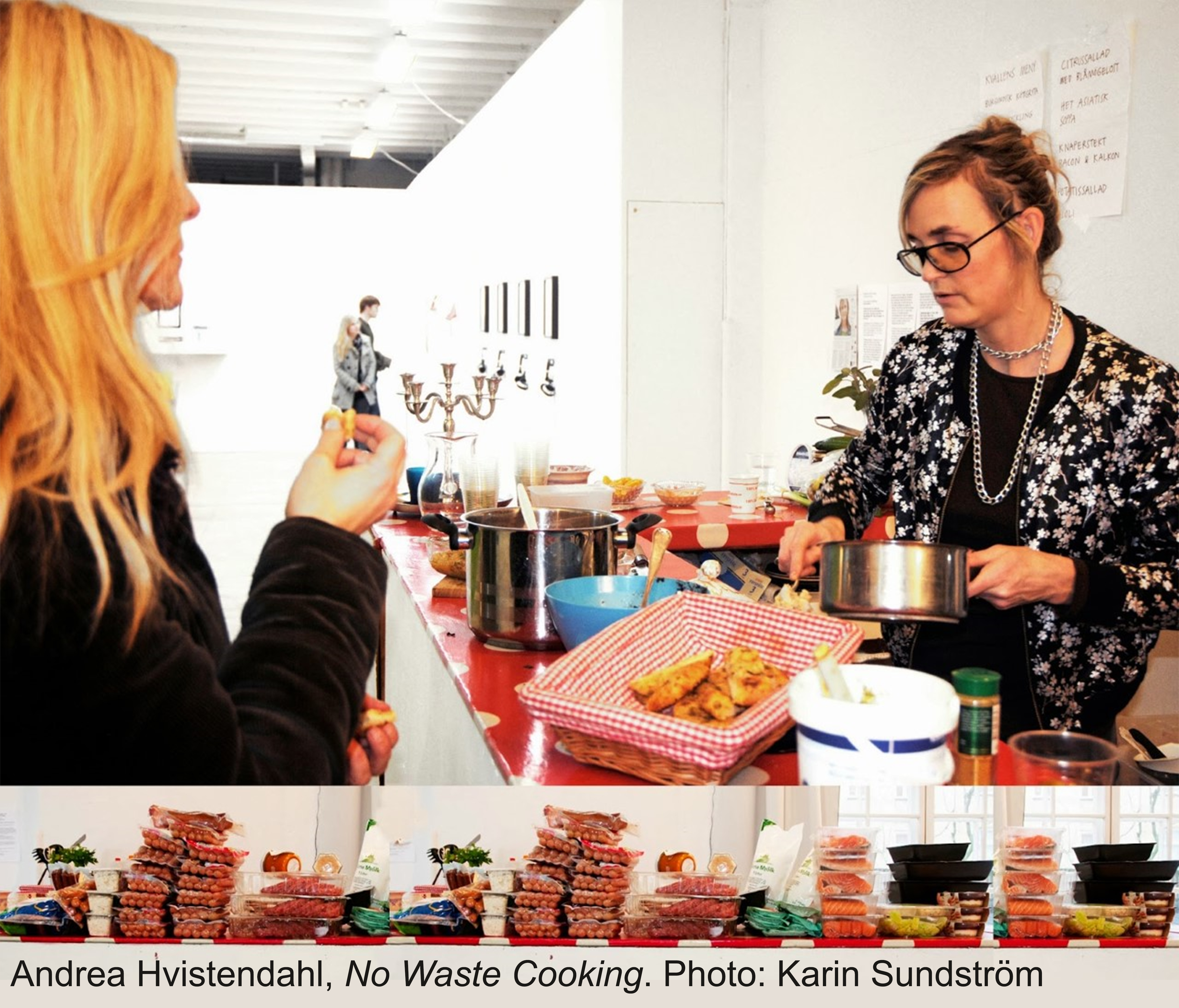No Waste Cooking – An Exploration of Politics as Redistribution of the Sensible
DOI:
https://doi.org/10.7577/information.3634Abstract
Life in affluent, big city society with huge amounts of easily accessible food results in extensive food waste on different levels, causing greenhouse gas emissions. The aim of this article is to explore and discuss whether—and if so, how—an urban art action may contribute to displacement in social food practices. Using the Swedish artist Andrea Hvistendahl’s ongoing project No Waste Cooking as a case study, I approach this art action through Jacques Rancière’s concept of politics as distribution and redistribution of the sensible. The most important research questions are: How is No Waste Cooking involved in redistributing social food waste practices? How is the project related to similar projects in visual culture?
No Waste Cooking concerns saving and upgrading food from grocery stores that would otherwise be thrown away. As an urban gleaner, Hvistendahl gathers this food and intervenes between grocery stores and consumers, creating a space for leftovers, sensations and reflections. Food after its expiration date has become the fulcrum, the third thing, a common reference in which the artist, the visitors, as well as the readers are invited to reassess our values and behavior patterns on food, and elaborate and develop further discussion and proliferation. In this sense, No Waste Cooking has a didactic function, displaying ethical questions and possible ways to deal with them without straightforward answers. Albeit in a modest alteration, art becomes life.

Downloads
Published
How to Cite
Issue
Section
License
Copyright (c) 2019 Sissel Gunnerød

This work is licensed under a Creative Commons Attribution 4.0 International License.
Authors who publish with this journal agree to the following terms:
- Authors retain copyright and grant the journal right of first publication with the work simultaneously licensed under a Creative Commons Attribution License that allows others to share the work with an acknowledgement of the work's authorship and initial publication in this journal.
- Authors are able to enter into separate, additional contractual arrangements for the non-exclusive distribution of the journal's published version of the work (e.g., post it to an institutional repository or publish it in a book), with an acknowledgement of its initial publication in this journal.
- Authors are permitted and encouraged to post their work online (e.g., in institutional repositories or on their website) prior to and during the submission process, as it can lead to productive exchanges, as well as earlier and greater citation of published work (See The Effect of Open Access).